#Global Innovation Fund
Explore tagged Tumblr posts
Text
BitNest
BitNest: The Leader of the Digital Finance Revolution
BitNest is a leading platform dedicated to driving digital financial innovation and ecological development. We provide comprehensive cryptocurrency services, including saving, lending, payment, investment and many other functions, creating a rich financial experience for users.
Our story began in 2022 with the birth of the BitNest team, which has since opened a whole new chapter in digital finance. Through relentless effort and innovation, the BitNest ecosystem has grown rapidly to become one of the leaders in digital finance.
The core functions of BitNest ecosystem include:
Savings Service: Users can deposit funds into BitNest's savings system through smart contracts to obtain stable returns. We are committed to providing users with a safe and efficient savings solution to help you achieve your financial goals. Lending Platform: BitNest lending platform provides users with convenient borrowing services, users can use cryptocurrencies as collateral to obtain loans for stablecoins or other digital assets. Our lending system is safe and reliable, providing users with flexible financial support. Payment Solution: BitNest payment platform supports users to make secure and fast payment transactions worldwide. We are committed to creating a borderless payment network that allows users to make cross-border payments and remittances anytime, anywhere. Investment Opportunities: BitNest provides diversified investment opportunities that allow users to participate in trading and investing in various digital assets and gain lucrative returns. Our investment platform is safe and transparent, providing users with high-quality investment channels. Through continuous innovation and efforts, BitNest has become a leader in digital finance and is widely recognised and trusted globally. We will continue to be committed to promoting the development of digital finance, providing users with more secure and efficient financial services, and jointly creating a better future for digital finance.
#BitNest: The Leader of the Digital Finance Revolution#BitNest is a leading platform dedicated to driving digital financial innovation and ecological development. We provide comprehensive crypto#including saving#lending#payment#investment and many other functions#creating a rich financial experience for users.#Our story began in 2022 with the birth of the BitNest team#which has since opened a whole new chapter in digital finance. Through relentless effort and innovation#the BitNest ecosystem has grown rapidly to become one of the leaders in digital finance.#The core functions of BitNest ecosystem include:#Savings Service: Users can deposit funds into BitNest's savings system through smart contracts to obtain stable returns. We are committed t#Lending Platform: BitNest lending platform provides users with convenient borrowing services#users can use cryptocurrencies as collateral to obtain loans for stablecoins or other digital assets. Our lending system is safe and reliab#providing users with flexible financial support.#Payment Solution: BitNest payment platform supports users to make secure and fast payment transactions worldwide. We are committed to creat#anywhere.#Investment Opportunities: BitNest provides diversified investment opportunities that allow users to participate in trading and investing in#providing users with high-quality investment channels.#Through continuous innovation and efforts#BitNest has become a leader in digital finance and is widely recognised and trusted globally. We will continue to be committed to promoting#providing users with more secure and efficient financial services#and jointly creating a better future for digital finance.#BitNest#BitNestCryptographically
3 notes
·
View notes
Text
In Somaliland, a Sin Tax for Mental Health Relief
Who knew a 'sin tax' on #Khat could lead to #MentalHealth revolution in #Somaliland? Country's innovative approach is #Funding treatment for addicts, but let's not forget: #InternationalDonors, you're not off the hook yet! #MentalHealthMatters #Qat
Continue reading In Somaliland, a Sin Tax for Mental Health Relief
#Cecilia Butini#Financing#Funding#Global Health Security#Healthcare#Inclusive Development#Innovation#Khat#Khat Chewers#Mental Health#Mental health services#Social#Taxation
0 notes
Text
President Mokgweetsi Masisi of Botswana visits the Legatum Center at MIT
New Post has been published on https://thedigitalinsider.com/president-mokgweetsi-masisi-of-botswana-visits-the-legatum-center-at-mit/
President Mokgweetsi Masisi of Botswana visits the Legatum Center at MIT


President Mokgweetsi Masisi of Botswana visited the Legatum Center for Development and Entrepreneurship at MIT on Tuesday, delivering a speech on the value of entrepreneurship in growing economies and affirming an interest in working with the center on spurring innovation in his own country.
“Innovation is … not a privilege for the few, but a powerful tool that should be accessible for all,” Masisi said during a speech at the Legatum Center’s “Innovation in Global Growth Markets: Prosperity Through Entrepreneurship” conference, marking the center’s 15th anniversary.
Botswana, Masisi said, should undertake a “deliberate effort to deliver a vibrant innovation ecosystem by increasing investment in science, technology, and innovation, thus creating space for our current and future generations … to thrive and ensure an improved quality of life” in the country.
MIT President Sally A. Kornbluth also spoke at the event, highlighting the ways that the Legatum Center — which is part of the MIT Sloan School of Management — enables innovation-driven economic growth.
The goal, Kornbluth said, is to “help advance innovative ideas that have the potential for real impact and require long-term investment to succeeed; help connect promising entrpreneurs with investors, mentors, and advisors; and provide the resources that are needed to develop, scale, and deploy their solutions.”
Kornbluth also highlighted MIT’s new effort to combat climate change, the Climate Project at MIT. She noted that more than a quarter of MIT faculty have already been working on climate issues but that the new Institute-wide effort can produce “ways to have talented people do more together than they can do alone, so that we can help direct that collective power to deliver climate solutions to the world, in time.”
Georgia Perakis, the John C Head III Dean (Interim) of MIT Sloan, also delivered remarks at the conference, noting that MIT Sloan and the Legatum Center are committed to “educating principled innovation leaders and entrepreneurs who will make a difference and have an impact in the world.” She added, “And I know with the support of everybody here, this is what we are accomplishing.”
In addition to his appearance at the conference, Masisi, along with a delegation of government leaders from Botswana, met directly with Kornbluth, as well as with Dina H. Sherif, executive director of the Legatum Center, and other MIT administrators and faculty members.
In opening remarks at the conference, Sherif observed, “The majority of the world’s growth now comes from what has historically been referred to as the developing world. It is time for us to start recognizing that our time is now. We are not rising. We are here, we are strong, and it is up to us to create the prosperity that we need.”
Sherif added: “Long heralded as a regional reference for good governance and stability, Botswana is now uniquely positioned to become more influential globally and set an example for a rapid transition to a knowledge economy, leading the path for the rest of Africa.”
Masisi has been president of Botswana since 2018. He served as the country’s vice president from 2014 through 2018 and as a member of parliament from 2009 through 2018. The son of a longtime Botswana politican, Edison Masisi, he has a BA from the University of Botswana and an MA from Florida State University.
Botswana has one of the highest per-capita incomes in Africa. The country gained independence from Britain in 1966 and has been a democracy ever since. However, leaders are continuing to examine ways of diversifying the country’s economy.
As such, Botswana and the Legatum Center issued a memorandum of understanding to explore new ways to enhance innovation-driven growth in the country. Elements of the memorandum include establishing a fellowship for African innovation-driven entrepreneurs and student fellows in the mode of the Legatum Center’s fellowships, accelerating the country’s digitalization through uses of artificial intelligence, building an MIT Sandbox program to encourage entrepreneurship within Botswana, participation in the MIT Regional Entrepreneurship Acceleration Program, and possibly other joint activities.
For its part, the Legatum Center also issued a report summarizing its 15 years of impact in global growth markets. The center was initially housed in the MIT School of Architecture and Planning, during which it supported graduate students from all five schools at MIT. It then became part of the MIT Sloan School of Management in 2014.
The Legatum Center’s Student Fellowship supplies MIT students with curriculum, tuition support, advisor networks, and experiential learning opportunities to help drive their venture ideas ahead. So far, the center has provided over $10 million in fellowship funding to 326 fellows. In turn, those Legatum Fellows have created 282 ventures, about three-quarters of which still exist, raising over $1 billion in funding and creating over 17,000 jobs by themselves.
Among the center’s core aspirations has been to “create a home for immensely talented and promising young entrepreneurs,” said Legatum Group CEO Mark Stoleson, during an interview with MIT News between conference panel sessions.
In turn, Stoleson added, those Legatum Fellows will then “hopefully go back to the countries they came from and start businesses, create jobs, and be leaders within the ecosystem of entrepeneurship and prosperity within their countries.”
#000#Africa#anniversary#architecture#artificial#Artificial Intelligence#billion#Britain#Building#CEO#change#climate#climate change#Collective#conference#Democracy#development#economic#economy#Faculty#Funding#Future#generations#Global#governance#Government#growth#Ideas#impact#Innovation
0 notes
Text
Merchant Services for Beauty Salons
#Merchant Services for Beauty Salons#merchant services#beauty salon#beauty salon merchant cash advance capital#beauty hair salon merchant cash funding#beauty salon merchant cash advance financing#beauty hair salon merchant cash advance capital#global merchant services#beauty hair salon merchant cash advance financing#merchant services miami florida#merchant services miami#miami merchant services#merchant#merchant service#salon#merchant services in miami#merchant service innovations
1 note
·
View note
Text
Navigating Sun Life's Journey: Innovations and commitment to brighter financial futures
In a rapidly evolving landscape of financial services, Sun Life emerges as a beacon of innovation, illuminating the path to brighter futures for Filipinos. Recent developments spanning engaging roadshows, regional recognition, and pioneering investment strategies reflect not just a trail of achievements, but a dedication to empowering individuals and families. A Vibrant Blend of Inspiration and…

View On WordPress
#accolades#ATLAA#awards#brighter future#CFA Society Philippines#commitment#Dollar investments#engagement#entrepreneurship#Filipinos#financial consultation#financial security#financial services#global equities#innovation#Insurance Asia Awards#investment#investment fund#leadership#music event#Partner for Life#press release#prosperity#recognition#roadshow#SLAMCI#SLGFI#sun life#sun life philippines#Sun Life Prosperity World Voyager Fund
0 notes
Text
Funded Traders: Reshaping the Future of Online Trading
Funded traders have emerged as influential players in the world of online trading, reshaping the dynamics of financial markets. These traders participate in funded trading programs that provide them with access to substantial trading capital and resources. Funded trading programs, such as Funded Traders Global, have gained global popularity by offering traders the opportunity to access significant capital and compete on an equal footing in the forex market. The advantages of funded trading include reduced financial risk, the possibility of earning a share of profits without personal investment, and the ability to focus solely on trading strategies and performance. However, funded traders also face challenges such as performance evaluation and risk management. Despite the challenges, funded trading programs have profoundly impacted the online trading industry, leading to the evolution of trading platforms, increased competition and innovation, and the potential disruption of traditional trading models. Funded traders are poised to redefine the way traders participate in financial markets, and platforms like Funded Traders Global offer a supportive ecosystem for traders to thrive.
#Funded traders#online trading#financial markets#funded trading programs#access to capital#trading resources#advantages#challenges#impact#evolution#traditional trading models#Funded Traders Global#forex market#profit-sharing#risk management#trading strategies#performance evaluation#trading platforms#competition#innovation#accessibility#online trading landscape#transformation.#ftg#fundamental analysis
0 notes
Video
youtube
ICICI Mutual Fund Launched Innovation Fund Invest in Indian & Global Mar...
#youtube#ICICI Mutual Fund Launched Innovation Fund Invest in Indian & Global Market in All Sectors Long-Term
0 notes
Text
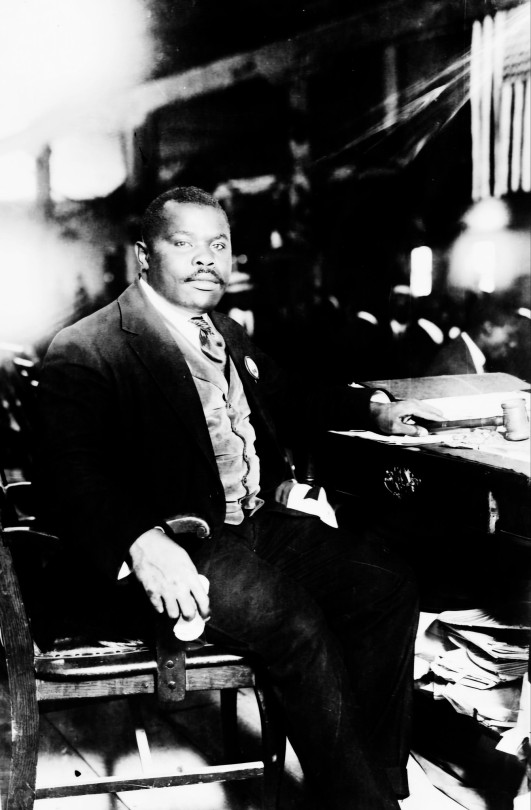
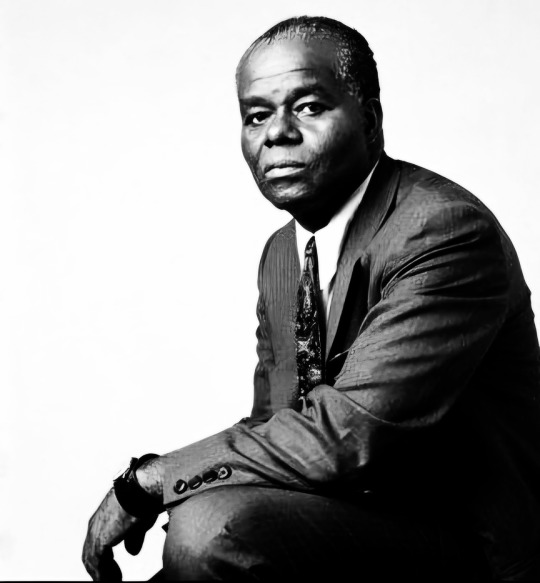
Why Dr. John Henrik Clarke Is Correct About Black People Having No Friends (and why We Don’t Need Any) – a Garveyite Perspective
Dr. John Henrik Clarke famously stated, “Black people have no friends.” For many, this may sound harsh, but it is a sobering truth when viewed through the lens of Pan-Africanism and Marcus Garvey’s philosophy. Garvey understood that Black liberation can not depend on external allies; it must come from within—rooted in self-reliance, unity, and a shared commitment among Black people globally.
Here’s why, Dr. Clarke’s statement rings true and why, from a Garveyite perspective, Black people don’t need friends—only each other.
1. History Proves It
From colonialism to the civil rights era, supposed "friends" of Black people have repeatedly betrayed or abandoned us. Other groups have leveraged Black struggles for their own gains, only to leave Black people behind once their goals were achieved.
Post-slavery labour movements excluded Black workers.
Civil rights coalitions saw other groups gain rights, while Black people remained trapped under systemic racism.
Garvey and Clarke both saw these betrayals as evidence that Black people must prioritize their own interests and stop relying on others.
2. Global Anti-Blackness Is Real
Anti-Blackness isn’t confined to one region—it’s a global phenomenon. Across continents, Black people face systemic oppression, discrimination, and dehumanization.
Other groups often form alliances to protect their own power while marginalizing Black voices.
Even in spaces of shared oppression, anti-Blackness often takes precedence.
Dr. Clarke’s assertion and Garvey’s vision both point to this truth: Black liberation must come from within because no one else will prioritize us.
3. Dependency Leads to Exploitation
Depending on outside "friends" or "allies" often comes with hidden costs. Foreign aid, alliances, and solidarity movements often prioritize the interests of others over Black liberation.
Aid to African nations often perpetuates dependency rather than fostering self-sufficiency.
"Allies" in social justice movements often centre their struggles, leaving Black people to fight alone.
Garvey warned that dependency breeds vulnerability. Clarke reinforces this: Black people must build their own systems to avoid exploitation.
4. We Have Everything We Need
Garvey believed that Black people possess the resources, talents, and ingenuity needed for liberation.
Africa’s wealth: With its vast natural resources, Africa can fund global Black empowerment if reclaimed from exploitative systems.
Diaspora talent: Across the globe, Black communities excel in innovation, creativity, and resilience.
Dr. Clarke’s statement echoes Garvey’s vision: We don’t need friends because we already have all the tools for success.
5. Cultural Exploitation Is Proof of No True Friendship
Black culture—music, art, fashion, and more—is celebrated globally, but Black people are rarely compensated or empowered by their own creations.
Other groups profit from Black innovation while perpetuating anti-Black systems.
Cultural exploitation demonstrates a lack of true solidarity.
Garvey’s solution: Black people must reclaim their culture and use it as a tool for empowerment, not exploitation.
6. Unity Is Our Greatest Strength (and Threat to Oppressors)
A united global Black community is the most powerful weapon against systemic oppression. Garvey emphasized unity, and Clarke’s assertion underscores why others fear it:
A unified Black world challenges global power structures that thrive on division.
By focusing on internal unity, Black people strengthen themselves and disrupt oppressive systems.
7. Allies Often Divide Us
Alliances can create divisions within Black movements, as external influences pit factions against each other or dilute the focus on Black liberation.
During the civil rights movement, alliances often marginalized more radical Black voices.
Today, funding from external groups can cause conflicts between grassroots Black organizers and larger organizations tied to outside agendas.
Garvey’s emphasis on self-reliance offers a solution: Black unity must come first, free from outside interference.
8. Other Groups Prioritize Their Own Interests
Every group prioritizes its own survival and progress—it’s not wrong, but Black people must learn from this.
White nations maintain global alliances to uphold their dominance.
Asian nations focus on economic self-sufficiency.
Jewish communities have built strong networks to protect and uplift their people.
Garvey and Clarke would agree: It’s time for Black people to do the same and put themselves first.
9. Historical Success Through Self-Reliance
History proves that Black people thrive when they rely on themselves:
The Haitian Revolution succeeded because enslaved Africans united and rejected external dependence.
Garvey’s UNIA (Universal Negro Improvement Association) built businesses, schools, and a global movement without outside help.
These examples show that self-reliance works. Black people don’t need friends—they need focus.
10. True Liberation Is Self-Determined
Liberation can not be outsourced, gifted, or borrowed—it must be self-determined. Allies may help temporarily, but no one will prioritize Black liberation over their own interests.
Garvey envisioned a world where Black people controlled their own economies, politics, and resources.
Clarke’s assertion reminds us that we can’t afford to waste time seeking validation or support from others.
11. Black Liberation Threatens Global Power Structures
Both Garvey and Clarke understood that Black liberation isn’t just a struggle for freedom—it’s a direct threat to the systems of power that dominate the world.
A free and united Africa would undermine Western economic dominance, which relies on exploiting African resources.
A globally empowered Black diaspora would disrupt industries, politics, and systems built on anti-Blackness.
This explains why no other group can truly be a friend to Black liberation. Their survival often depends on maintaining the status quo that oppresses us.
12. “Allies” Often Centre Themselves in Our Struggles
Even when other groups claim to stand in solidarity with Black movements, their involvement often centers their own experiences, narratives, and priorities.
Non-black allies frequently shift attention to their struggles, leaving Black people to carry the burden of fighting for everyone else.
Movements like Black Lives Matter have seen external groups co-opt their messages for personal or political gain.
Garvey’s philosophy reminds us to stay focused on our own goals and not allow our movements to be hijacked.
13. Romanticizing External Help Distracts from Pan-African Solutions
One of the pitfalls of seeking allies is the belief that external help is necessary or even superior. This mindset can prevent Black people from exploring Pan-African solutions.
Garvey’s vision of “Africa for Africans” called for African nations and the diaspora to work together without relying on foreign nations or systems.
Clarke’s statement reinforces this idea: the best solutions come from within. Black people don’t need external friends—they need internal unity.
14. Allies Often Maintain Anti-Black Systems
Even so-called “progressive” allies often uphold the same systems that oppress Black people.
Corporations claiming to support racial justice continue to exploit African resources and labour.
Governments speaking out against racism still engage in policies that harm Black communities worldwide.
Dr. Clarke and Garvey both understood this hypocrisy. Real liberation requires rejecting systems that perpetuate oppression, even if they claim to support us.
15. Our Focus Should Be on Building Future Generations, Not Pleasing Others
Garvey often emphasized the importance of preparing future generations to lead and succeed independently.
Clarke’s warning about having no friends reinforces this: Why waste time seeking allies when we could be building schools, economies, and systems that empower our children?
A Garveyite perspective prioritizes creating a legacy of self-reliance and leadership that ensures the survival and progress of Black people globally.
By focusing on the future, Black people can stop relying on the approval or assistance of others and instead secure their own destinies.
Final Reflection: All We Have Is Us, and That’s Enough
Dr. John Henrik Clarke’s statement and Marcus Garvey’s philosophy both lead to the same conclusion: Black people must take responsibility for their liberation. True freedom can not and will not come from allies—it must come from within. The power lies in our hands, in our unity, and in our shared commitment to self-determination.
We don’t need friends. We need ourselves.
#marcus garvey#Dr John Henrik Clarke#Garveyism#pan africanism#self reliance#No Allies#black unity#black liberation#Anti Blackness#economic independence#black people#black history#black#black tumblr#blacktumblr#black conscious#africa#black power#black empowering#black future#Global Black Community#black leadership#african diaspora#black diaspora#black culture#african culture#people of color#POC
339 notes
·
View notes
Text
For much of living memory, the United States has been a global leader of scientific research and innovation. From the polio vaccine, to decoding the first human chromosome, to the first heart bypass surgery, American research has originated a seemingly endless list of health care advances that are taken for granted.
But when the Trump administration issued a memorandum Monday that paused all federal grants and loans—with the aim of ensuring that funding recipients are complying with the president’s raft of recent executive orders—US academia ground to a halt. Since then, the freeze has been partially rescinded for some sectors, but it largely remains in place for universities and research institutions across the country, with no certainty of what comes next.
“This has immediate impact on people’s lives,” says J9 Austin, professor of psychiatry and medical genetics at the University of British Columbia. “And it’s terrifying.”
The funding freeze requires agencies to submit reviews of their funded programs to the Office of Management and Budget by February 10. The freeze follows separate orders issued last week to US health agencies—including to the National Institutes of Health, which leads the country’s medical research—to pause all communications until February 1 and stop almost all travel indefinitely.
The confusion is consummate. If the funding freeze continues through February, and even beyond, how will graduate students be paid? Should grant applications—years long in the writing—still be submitted by the triannual grant submission deadline on February 5? What does this mean for clinical trials if participants and lab techs can’t be paid? Will all that research have to be scrapped thanks to incomplete data?
Even if Trump fully reverses the freeze on research funding, the damage, multiple sources say, has been done. Although for now the funding freeze is temporary, the administration has shown how it might wield the levers of government. The implication is that withdrawing funding could be done more permanently, and could be done to individual institutions, individual organizations, both private and public. This won’t just set a precedent for the large East Coast or West Coast universities, but those located in both red and blue states alike.
While always an imperfect arrangement, science in the US is largely funded by a complex system of grant applications, reviews by peers in the field (both of which have had to be halted as part of the communications pause), and the competitive distribution of NIH funds, says Gerald Keusch, emeritus professor of medicine at Boston University and former associate director of international research for the NIH. According to its website, the NIH disburses nearly $48 billion in grants per year.
When it comes to medical research, America truly is first, and if it abdicates that position, the void left behind has global ramifications. “In Canada, we have always looked to NIH as an exemplar of what we should be trying to do,” says Austin, speaking to me independently of any roles and affiliations. “Now, that’s collapsed.”
Science is, in its very nature, collaborative. Many consortiums and alliances within scientific fields cross borders and language barriers. Some labs may be able to find additional funding from alternative sources such as the European Union. But it is unlikely that a continued withdrawal of NIH funding could be plugged by overseas support. And Big Pharma, with its seemingly endless funds, is unlikely to step up either, according to sources WIRED spoke with.
“This can’t be handed off to drug companies or biotech, because they’re not interested in things that are as preclinical as a lot of the work we’re discussing here,” says a professor of genetics who agreed to speak anonymously out of fear of retribution. “Essentially, there’s a whole legion of university-based scientists who work super damn hard to try to figure out some basic stuff that eventually becomes something that a drug company can drop $100 million on.”
The millions of dollars awarded to high-achieving labs is used to fund graduate students, lab techs, and analysts. If the principal investigator on a research team is unsuccessful in obtaining a grant through the process Keusch describes, often that lab is closed, and those ancillary team members lose their jobs.
One of the potential downstream effects of an NIH funding loss, even if only temporary, is a mass domestic brain drain. “Many of those people are going to go out to find something else to do,” the professor of genetics says. “These are just like jobs for anything else—we can’t not pay people for a month. What would the food service industry be like, for example, or grocery stores, if they don’t pay somebody for a month? Their workers will leave, and pharma can only hire so many people.”
WIRED heard over and over, from scientists too fearful for their teams and their jobs to speak on the record, that it won’t take long for the impact to reach the general population. With a loss of research funding comes the closure of hospitals and universities. And gains in medical advancement will likely falter too.
Conditions being studied with NIH funding are not only rare diseases affecting 1 or 2 percent of the population. They’re problems such as cancer, diabetes, Alzheimer’s—issues that affect your grandmother, your friends, and so many people who will one day fall out of perfect health. It’s thanks to this research system, and the scientists working within it, that doctors know how to save someone from a heart attack, regulate diabetes, lower cholesterol, and reduce the risk of stroke. It’s how the world knows that smoking isn’t a good idea. “All of that is knowledge that scientists funded by the NIH have generated, and if you throw this big of a wrench in it, it’s going to disrupt absolutely everything,” says the genetics professor.
While some are hopeful that the funding freeze for academia could end on February 1, when the pause on communications and therefore grant reviews is slated to lift, the individuals WIRED spoke with are largely skeptical that work will simply resume as before.
“When the wheels of government stop, it’s not like they turn on a dime and they just start up again,” says Julie Scofield, a former executive director of NASTAD, a US-based health nonprofit. She adds that she has colleagues in Washington, DC, who have had funding returned to their fields, and yet remain unable to access payment through the management system.
Austin says that already the international scientific community is holding hastily arranged online support groups. Topics covered range from the banal—what the most recent communication from the White House implies—to how best to protect trainees and the many students on international visas. But mostly they’re there to provide support.
“I’ve had a lot of messages from people just expressing gratitude that we could actually get together,” Austin says. “There’s just so much unaddressable need. None of us has the answers.”
Scientists, perhaps more than any other profession, are trained to “learn and validate conclusions drawn from observation and experimentation,” says Keutsch. That applies to the current situation. And what they observe during this pause of chaos does not portend well for the future of the United States as a pinnacle of scientific excellence.
“If people want the United States to head toward being a second-class nation, this is exactly what to do. If the goal is, in fact, to make America great, this is not a way to do it,” says the genetics professor. “This is not a rational, thoughtful, effective thing to do. It will merely destroy.”
This story has been written under a pseudonym, as the reporter has specific and credible concerns about potential retaliation.
194 notes
·
View notes
Text
Global Innovation Fund for Organizations | How to Apply
Here’s an opportunity to apply for the Global Innovation Fund (GIF) which is designed to help organizations like yours grow. This Global Innovation Fund programme is a social impact-first investment vehicle that collaborates with mission-aligned development agencies, philanthropy, and other funders to identify and fund evidence-based innovations that have the potential to improve the lives of…
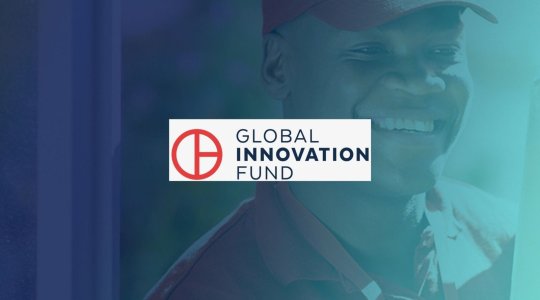
View On WordPress
#Call for Applications#Commonwealth Split-site#Flourish Africa Grant for Female Entrepreneurs#Global Innovation Fund#Global Innovation Fund for Organizations#Grants#loan#naija#Naira#Nigeria#Startup WISE Guys#Sustainability Acceleration Program#web3#Web3 Business Grant
0 notes
Text
The Best News of Last Week - 29 April 2024
1. Net neutrality rules restored by US agency
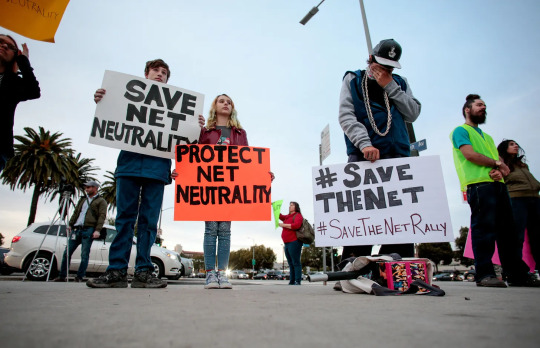
The U.S. Federal Communications Commission voted 3-2 on Thursday to reinstate landmark net neutrality rules and reassume regulatory oversight of broadband internet rescinded under former President Donald Trump.
2. Airlines required to refund passengers for canceled, delayed flights

DOT will also require airlines to give cash refunds if your bags are lost and not delivered within 12 hours.
The refunds must be issued within seven days, according to the new DOT rules, and must be in cash unless the passenger chooses another form of compensation. Airlines can no longer issue refunds in forms of vouchers or credits when consumers are entitled to receive cash.
3. How new mosquito nets averted 13 million malaria cases

Compared to standard nets, the introduction of 56 million state-of-the-art mosquito nets in 17 countries across sub-Saharan Africa averted an estimated 13 million malaria cases and 24,600 deaths. The New Nets Project, an initiative funded by Unitaid and the Global Fund and led by the Innovative Vector Control Consortium (IVCC), piloted the use of dual-insecticide nets in malaria-endemic countries between 2019 and 2022 to address the growing threat of insecticide resistance.
4. Germany has installed over 400,000 ‘solar balconies’

This new wave of solar producers aren’t just getting cheap electricity, they’re also participating in the energy transition.
More than 400,000 plug-in solar systems have been installed in Germany, most of them taking up a seamless spot on people’s balconies.
5. Voyager-1 sends readable data again from deep space

The US space agency says its Voyager-1 probe is once again sending usable information back to Earth after months of spouting gibberish.
The 46-year-old Nasa spacecraft is humanity's most distant object.
6. Missing cat found after 5 years makes 2,000-km journey home

Five years after it ran out the door, a lost cat was returned to a couple in Nevada after it was found thousands of kilometres away. The couple are praising the cat’s microchip for helping reunite them.
7. Restoring sight is possible now with optogenetics

Max Hodak's startup, Science, is developing gene therapy solutions to restore vision for individuals with macular degeneration and similar conditions. The Science Eye utilizes optogenetics, injecting opsins into the eye to enhance light sensitivity in retinal cells.
Clinical trials and advancements in optogenetics are showing promising results, with the potential to significantly improve vision for those affected by retinal diseases.
---
That's it for this week :)
This newsletter will always be free. If you liked this post you can support me with a small kofi donation here:
Buy me a coffee ❤️
Also don’t forget to reblog this post with your friends.
653 notes
·
View notes
Text
Jayce Talis' worst enemy is the fandom.
Okay, I need to talk about Jayce Talis because the way this fandom butchers his character is insane. People act like he’s just some dumb, arrogant golden boy who bumbled his way into power, but if that were true, he never would’ve made it past episode one. Jayce is smart —like, actually smart. He’s just not the same kind of smart as Viktor, and people act like that makes him useless.
Jayce isn’t a scientist in the way Viktor is. Viktor is all about pure innovation, pushing boundaries no matter the cost. Jayce? He’s an engineer. He takes ideas and makes them functional, practical, marketable. Hextech wouldn’t have happened without him—not because Viktor isn’t brilliant, but because Viktor never would’ve played politics, never would’ve known how to navigate Piltover’s elite, never would’ve gotten the funding or public support. Jayce made Hextech into something that mattered on a global scale. And yeah, he stumbles, yeah, he gets caught up in bureaucracy, but acting like he’s just some dumb himbo is a massive misread of his character.
And speaking of massive misreads: let’s talk about Jayce and Viktor. Because whatever *that* was? It wasn’t just friendship.
Jayce and Viktor’s relationship is so intense, so emotionally charged, and so central to both of their arcs that you can’t just hand-wave it away as “science bros.” Like, Viktor is the only person who fully understands Jayce’s ambitions, and Jayce is the only person who ever made Viktor believe he could actually change the world. Their whole dynamic is built on this deep, aching need for each other—not just professionally, but personally. Jayce trusts Viktor in a way he doesn’t trust anyone else. Viktor pushes Jayce in a way no one else does. And when that trust starts to crack? When they start moving in different directions? It wrecks them both.
Jayce doesn’t fall apart when he fights Vi. He doesn’t fall apart when he gets manipulated by Mel, when he struggles with the council, when he makes bad political moves. He falls apart when he realizes he and Viktor are no longer on the same path. That’s what breaks him. And the way he looks at Viktor when he finds out he’s dying? The way he crumbles at the idea of losing him? Come on.
So yeah. Jayce Talis is not dumb, and his relationship with Viktor is not just some casual friendship. That man was ready to rip apart the entire council the second Viktor started slipping away from him. If that’s not love, at least I know that's certainly not just friendship.
#Jayce talis is canonically an immigrant#jayce is too good#arcane#jayce talis#arcane jayce#viktor arcane#jayvik#i dont know what they have going on but it's certainly not just friendship.
119 notes
·
View notes
Text

ALERT! Bill Gates’s Secret Lab Experiments: Deadly Viruses Engineered for Mass Extinction – Devastating Bio-Weapons
The stark reality we face today delves into the darkest depths of human capability. At the center stands Bill Gates, a figure whose immense wealth is being used not for innovation, but to conduct experiments that push us to the brink of catastrophe. These Gates-funded labs at University of Wisconsin-Madison are not about pandemic prevention—they are about unleashing biological weapons capable of mass extinction.
Behind the guise of vaccine development, Gates’s billions fund genetic manipulation and viral enhancements, working with Yoshihiro Kawaoka, a name that should make your blood run cold. The real goal isn’t better vaccines—it’s to weaponize viruses like H5N1, a lethal pathogen, and make it transmissible between humans on a massive scale. Every experiment brings us closer to a man-made supervirus, impossible for natural immunity to fight, that could wipe out entire populations.
COVID-19 already showed us how pandemics can shift power, tighten control, and enforce compliance. Now imagine a deadlier virus, one deliberately unleashed to lock us into a future of surveillance, fear, and submission. This is the nightmare scenario that Gates and his cohorts are building, where control of a virus means control over humanity.
The media won’t talk about it—they’re too busy taking Gates’s money—but the truth is starting to leak. These labs, cloaked in secrecy, are building a future where bioengineered viruses can be blamed on “natural” outbreaks while being used to reshape global control. The strategy is clear: create fear, offer a solution, and tighten their grip on the world.
The rapid development of vaccines is part of the plan. While sold as protection, it shows how quickly the global elite can mobilize to protect themselves while manipulating us into compliance. This research is a double-edged sword—one side for a cure, the other for catastrophe.
We are on the edge of a future where biological weapons are not a distant threat, but a reality, manipulated by elites like Gates to wage wars without borders. This is no longer about safety—this is about control, domination, and the potential destruction of life as we know it.
We must wake up and resist before it’s too late. A storm is coming, and the global elite are at the helm, toying with the power to annihilate us all. The time to act is now.
I WILL NOT COMPLY 🤔
#pay attention#educate yourselves#educate yourself#knowledge is power#reeducate yourself#reeducate yourselves#think about it#think for yourselves#think for yourself#do your homework#do your own research#do your research#do some research#ask yourself questions#question everything#news#government corruption#depopulation agenda#stand united#united we stand#power and control#the deep state#the swamp#agenda 2030#be ready#be prepared
207 notes
·
View notes
Text
Alison Badgett named director of the Priscilla King Gray Public Service Center
New Post has been published on https://thedigitalinsider.com/alison-badgett-named-director-of-the-priscilla-king-gray-public-service-center/
Alison Badgett named director of the Priscilla King Gray Public Service Center


Vice Chancellor for Undergraduate and Graduate Education Ian A. Waitz announced recently that Alison Badgett has been appointed the new associate dean and director of the Priscilla King Gray (PKG) Public Service Center. She succeeds Jill Bassett, who left that role to become chief of staff to Chancellor Melissa Nobles.
“Alison is a thought leader on how to integrate community-engaged learning with systematic change, making her ideally suited to actualize MIT’s mission of educating transformative leaders,” Waitz says. “I have no doubt she will make the PKG Center a model for all of higher ed, given her wealth of experience, finely honed skills, and commitment to social change.”
“I’m excited to help the PKG Center, and broader MIT community, develop a collective vision for public service education that builds on the PKG Center’s strength in social innovation programming, and leverages the Institute’s unique culture of innovation,” Badgett says. “MIT’s institutional commitment to tackling complex societal and environmental challenges, taking responsibility for outcomes and not just inputs, is exceedingly rare. I’m also especially excited to engage STEM majors, who may be less likely to enter the nonprofit or public sector, but who can have a tremendous impact on social and environmental outcomes within the systems they work.”
Badgett has over 20 years of experience leading public policy and nonprofit organizations, particularly those addressing challenging issues like affordable housing and homelessness, criminal justice, and public education. She is the founding principal of a consulting firm, From Charity to Change, which works with nonprofit leaders, educators, and philanthropists to apply systems-change strategies that target the root causes of complex social problems.
Prior to her consulting role, Badgett was executive director of the Petey Greene Program, which recruits and trains 1,000 volunteers annually from 30 universities to tutor justice-impacted students in 50 prisons and reentry programs. In addition, the program educates volunteers on the injustice of our prison system and encourages both volunteers and students to advocate for reforms.
She also served as executive director of Raise Your Hand Texas, an organization that aims to improve education by piloting innovative learning practices. During her tenure, the organization launched a five-year, $10 million initiative to showcase and scale blended learning, and a 10-year, $50 million initiative to improve teacher preparation and the status of teaching.
Before leading Raise Your Hand Texas, Badgett was executive director of several organizations related to housing and homelessness in New York and New Jersey. During that time, she developed a $3.6 million demonstration program to permanently house the chronically homeless, which served as a model for state and national replication. She also served as senior policy advisor to the governor of New Jersey, providing counsel on land use, redevelopment, and housing.
Badgett holds a global executive EdD from the University of Southern California, an MA from Columbia University Teachers College in philosophy and education, and an BA in politics from Princeton University.
Her appointment at the PKG Center is especially timely. Student demand for social impact experiential learning opportunities has increased significantly at MIT in recent years, and the center is expected to play a sizable role in increasing student engagement in social impact work and in helping to integrate social innovation into teaching and research.
At the same time, the Institute has made a commitment to help address complex issues with global impacts, such as climate change, economic inequality, and artificial intelligence. As part of that effort, the Office of Experiential Learning launched the Social Impact Experiential Learning Opportunity initiative last year, which has awarded nearly $1 million to fund hundreds of student opportunities. Projects cater to a broad range of interests and take place around the world — from using new computational methods to understand the role of special-interest-group funding in U.S. public policy to designing and testing a solar-powered, water-vapor condensing chamber in Madagascar.
Badgett, who is currently writing a book on re-imagining civic education at elite private schools, will begin her new role at the PKG Center in July. In the meantime, she is looking forward to bringing her experience to bear at MIT. “While leading public interest organizations was highly rewarding, I recognized that I could have a far greater impact educating future public interest leaders, and that higher education was the place to do it,” she says.
#000#artificial#Artificial Intelligence#book#Chancellor#change#Charity#climate#climate change#Collective#college#Community#consulting#economic#education#Education#teaching#academics#Environmental#Funding#Future#Global#hand#housing#how#how to#impact#Impacts#Inequality#Innovation
0 notes
Text
These costs are not a waste or luxury — they make groundbreaking discoveries possible
By Harlan M. Krumholz
Feb. 8, 2025
Krumholz is a cardiologist and scientist at Yale University and Yale New Haven Hospital.
The National Institutes of Health has made a landmark decision that could irreparably damage the backbone of American scientific innovation: a dramatic reduction in the indirect cost rate for research grants. This sweeping policy change sets the indirect rate to 15%, a stark contrast with the 60% or more that many institutions currently rely on for essential administrative and operational costs.
As we contemplate this new era of science funding, it’s essential to understand the role that indirect costs play in research. These funds are not a luxury — they are vital for supporting the infrastructure that makes groundbreaking discoveries possible. Indirect costs cover expenses like research administration, the maintenance of lab facilities, and the overall operations that enable research to thrive. Without them, universities and research institutions simply cannot function at their full capacity.
74 notes
·
View notes
Text
Sun Life: Empowering Advisors, Promoting Sustainability, and Making a Difference in Communities
Sun Life, a leading financial services company, has been making significant strides in various areas, from empowering its advisors to promoting sustainability and making a positive impact in communities. Through a series of recent accomplishments, Sun Life has showcased its commitment to excellence, innovation, and social responsibility. Empowering Advisors for Success Over 200 Sun Life…
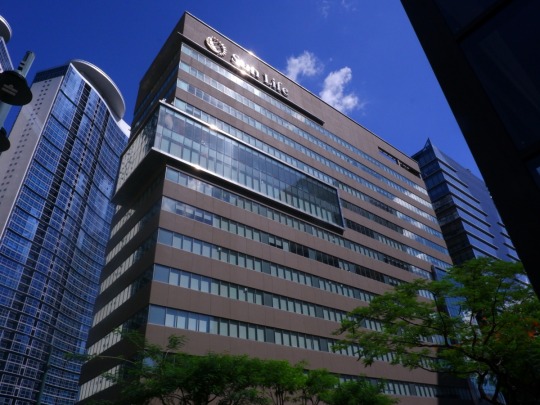
View On WordPress
#accessibility#advisors#affordability#bicycle donation#capital appreciation#community impact#CSR#education#employee empowerment#employer brand#ESG factors#estate planning#financial security#financial services#global funds#high-net-worth business#HR leadership#innovation#investment planning#life insurance#press release#RCBC Diskartech#remote areas#risk management#social responsibility#sun life#Sun Life Foundation#Sun Life Grepa#SunLife#sustainability
0 notes